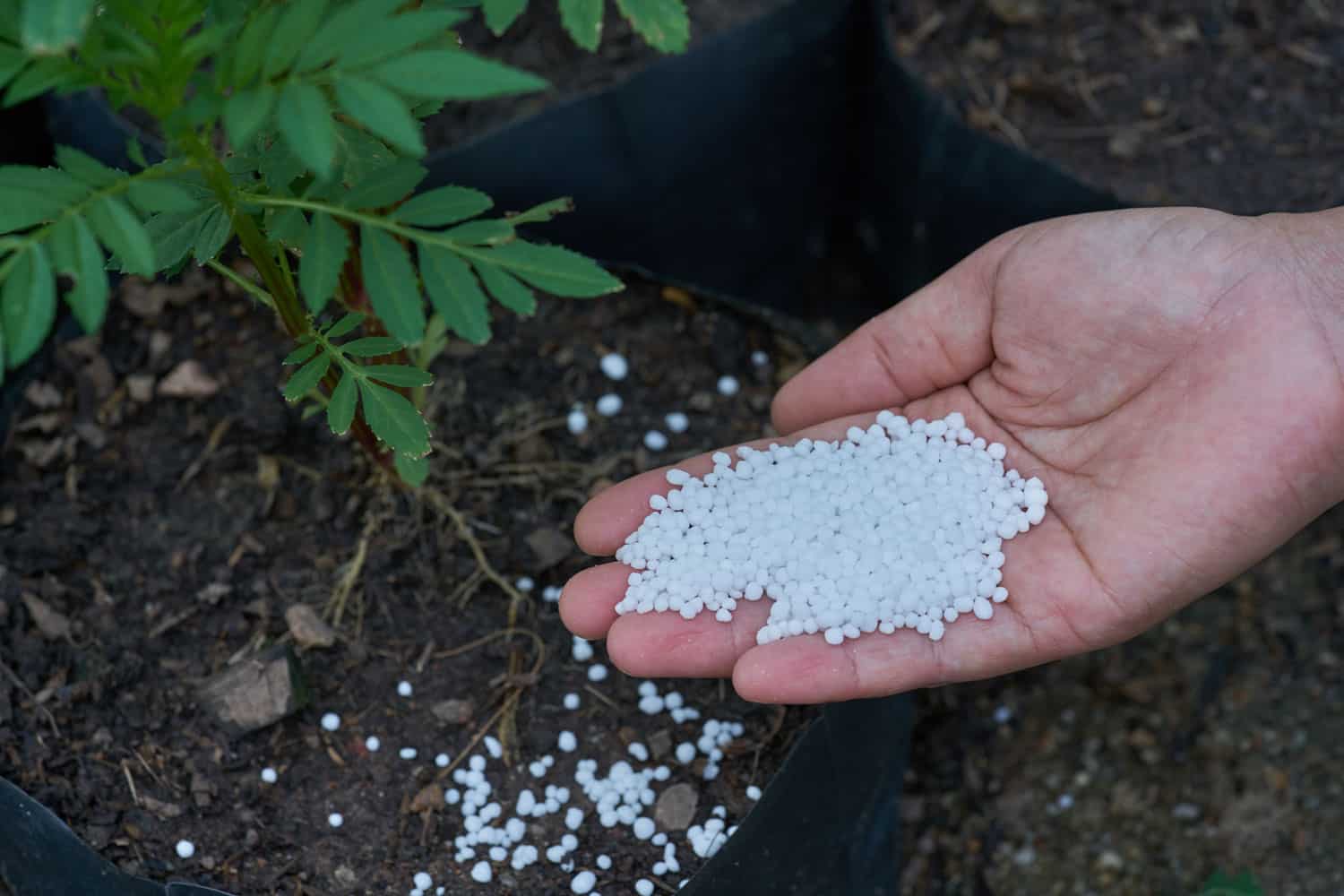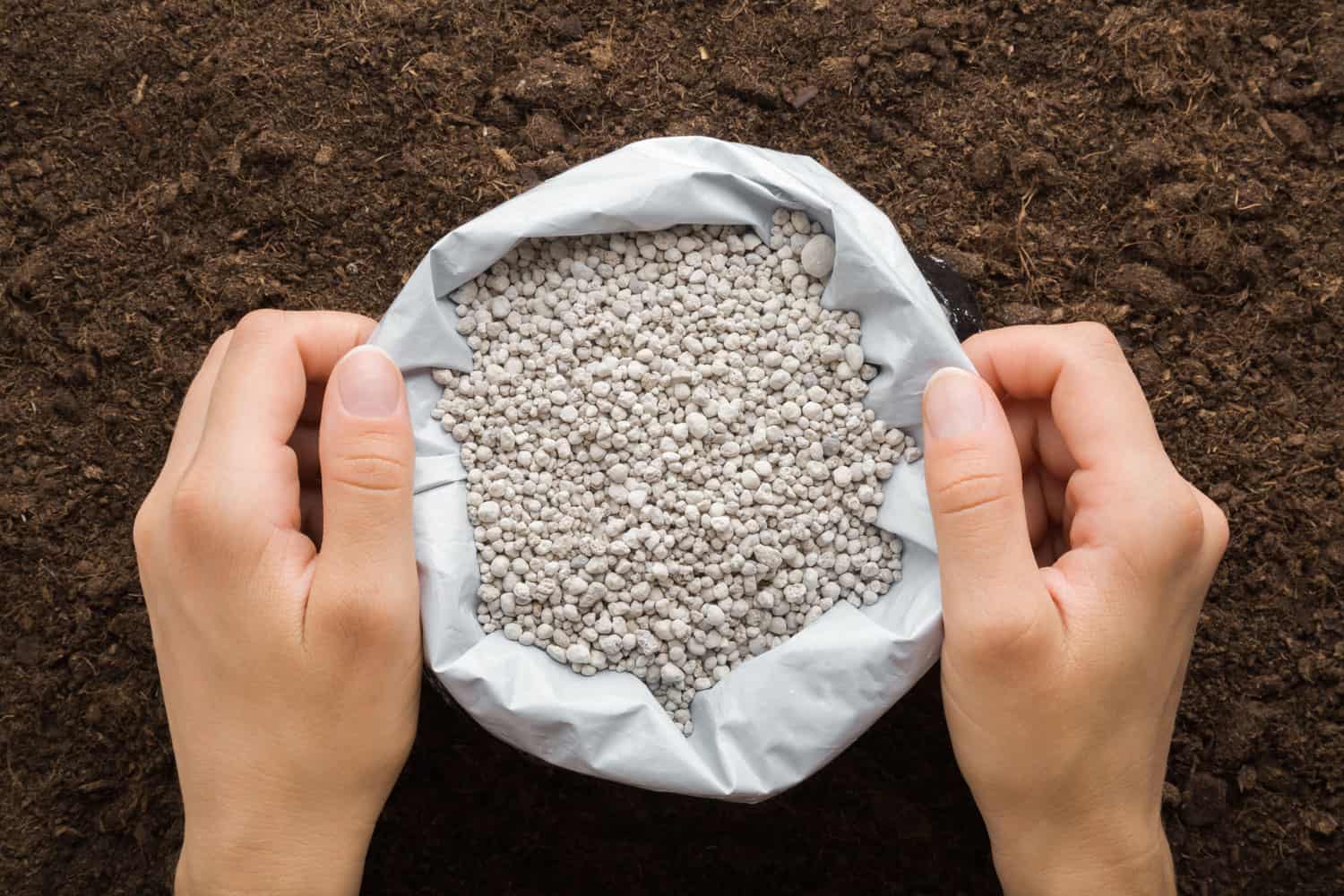If you're looking to maintain a healthy and beautiful snake plant, it's essential to understand the key nutrients it craves.
Snake plants are hardy but will still appreciate a well-balanced and nutrient-rich environment to support its growth.

In this article, you'll learn about your snake plant's nutritional needs and how to administer them so you can ensure it stays in its optimal condition.
Nutrient Essentials for Snake Plant
Like any other plant, snake plants have their nutritional needs that are key to their vibrant growth and lush appearance.

Below are the nutrients that will greatly benefit your snake plants to make them grow faster and develop vibrant green leaves.
1. Nitrogen
Your snake plant, like any other plant, requires nitrogen for green leaf growth and overall health.
Nitrogen is a critical component of chlorophyll – the substance responsible for photosynthesis – which enables plants to convert sunlight into energy.
For your snake plant, a moderate level of nitrogen is necessary.
Too much nitrogen may lead to excessive foliage growth at the expense of root development, while too little can result in stunted growth and yellowing leaves.
To maintain the right nitrogen balance in your snake plant's soil, you may consider using a balanced organic fertilizer.
2. Phosphorus
Phosphorus plays a significant role in the development of healthy roots, flowers, and fruits.
In snake plants, phosphorus is vital for overall structural integrity, as it aids in cell division and energy storage.
A balanced organic fertilizer would be beneficial for providing necessary phosphorus without the risk of over-fertilizing.
Keep an eye on your snake plant, as signs of phosphorus deficiency include poor root growth, reduced plant size, and purple-tinted leaves.
3. Potassium
Potassium is crucial for the metabolic processes in your snake plant.
It regulates water balance, strengthens cell walls, and promotes efficient nutrient absorption, ensuring that your snake plant is healthy and vigorous.
To provide an adequate amount of potassium, consider using organic fertilizers, such as compost, which release nutrients slowly over time.
If your snake plant shows signs of potassium deficiency, such as yellowing or necrosis on the leaf margins, address the issue promptly to prevent long-term damage.
Read more about fertilizer requirements here: 14 Best Fertilizers For Snake Plants
Secondary Nutrients Your Snake Plant Needs
Below we'll discuss the importance of calcium, magnesium, and sulfur for your snake plant.
1. Calcium
Calcium plays a vital role in maintaining the structural integrity of your snake plant's cell walls.
Strong cell walls are crucial for supporting new growth and preventing diseases.
Additionally, calcium promotes healthy root development, ensuring your plant can effectively uptake water and nutrients from the soil.
Make sure your snake plant receives a sufficient amount of calcium by using a well-balanced fertilizer or incorporating lime into its potting mix.
2. Magnesium
Magnesium is another essential secondary nutrient for your snake plant.
It serves as the central element in chlorophyll, the compound responsible for the process of photosynthesis.
Without enough magnesium, your snake plant might struggle to produce energy and its leaves may turn yellow.
To remedy this, you can use a magnesium-rich fertilizer or apply Epsom salt to the potting mix, which contains both magnesium and sulfur.
3. Sulphur
Sulphur aids in your snake plant's production of essential amino acids and proteins. These compounds are vital for the plant's overall growth and health.
Moreover, sulphur contributes to the green color of the plant's foliage. If your snake plant seems to lack vibrancy or vigor, it might be experiencing a sulfur deficiency.
To increase the sulfur content around your plant's roots, work a sulfur-containing fertilizer or an organic amendment like gypsum into the potting mix.
Micro Nutrients for Wellness
Certain micronutrients play a crucial role in supporting the overall health and development of snake plants in all growth stages.
1. Iron
Iron is a vital micronutrient for your snake plant, as it helps in the production of chlorophyll - the pigment responsible for photosynthesis.
Insufficient iron can lead to chlorosis, a condition where the plant's leaves turn yellow while the veins remain green.
To maintain optimal iron levels, make sure your potting mix contains trace amounts of iron and ensure that the soil pH is slightly acidic to improve iron absorption.
2. Manganese
Manganese aids your snake plant in the process of photosynthesis, enzyme activation, and the synthesis of protein.
A deficiency in manganese may cause interveinal chlorosis and reduced growth.
Incorporating a balanced fertilizer that includes manganese can help maintain the necessary levels for your plant's overall wellness.
3. Zinc
Zinc is essential for the proper functioning of enzymes and the production of proteins in your snake plant.
A deficiency in zinc can cause stunted growth and curled leaves.
To provide adequate zinc, you can use trace element fertilizers or apply a foliar spray specifically designed for indoor plants.
4. Copper
Copper promotes the formation and functioning of enzymes, which assist in various biochemical processes within your snake plant.
Insufficient copper intake can cause leaf distortion and hinder overall growth. Ensure that your potting mix contains small amounts of copper to support your plant's wellness.
5. Boron
Boron is crucial for the structural integrity of your snake plant's cell walls and plays a role in nutrient uptake.
A shortage of boron may result in brittle leaves and reduced growth.
Including boron in your feeding regimen through a balanced fertilizer can help ensure your plant receives this essential micronutrient.
6. Molybdenum
Molybdenum may be required in trace amounts, but it plays a crucial part in the nitrogen metabolism of your snake plant.
A deficiency in molybdenum can lead to poor overall health and reduced vigor.
To support your plant's needs, apply a fertilizer containing trace elements, including molybdenum.
Learn more from this video:
Solving Nutrient Deficiencies
When it comes to nutrient deficiencies, it's always better to prevent them.
If you notice any issues with your plant, such as stunted growth, chlorosis, interveinal discoloration, purplish-red coloring, or necrosis, it's time to take action!
Identify the Specific Nutrient Deficiency
The first step is to identify the specific nutrient deficiency your snake plant is experiencing.
Each nutrient plays a crucial role in your plant's growth and overall health.
For example, nitrogen is responsible for the green color of the leaves and overall growth.
So, if your snake plant's leaves are turning yellow and drying out, it may be a sign of nitrogen deficiency.
Address the Problem
Once you have identified the deficiency, you can start addressing it.
For nitrogen deficiency, begin by adding a balanced fertilizer to the soil.
Usually, a slow-release, granular fertilizer containing equal amounts of nitrogen, phosphorus, and potassium works well.
Make sure to follow the package instructions on application rates and frequency.
Another common deficiency in snake plants is lack of potassium.
If your plant's leaves are showing signs of interveinal chlorosis or brown, necrotic spots, it may be due to lack of potassium.
Applying a potassium-rich fertilizer can help solve this issue while also promoting strong roots and overall vigor.
View this snake plant specific liquid fertilizer on Amazon.
Wait for Recovery
Be patient, as it may take some time for your snake plant to recover from nutrient deficiencies.
Keep an eye on the plant's progress and make any necessary adjustments to your care routine.
With proper care and nutrient management, your snake plant will likely bounce back and continue to grow healthy and strong.
If you see signs of slow growth, check here: Why Is My Snake Plant Not Growing? Hidden Growth Stoppers To Know
Give in to Your Snake Plant's Nutritional Cravings
Taking care of your snake plant means providing it with the key nutrients it craves.
To help your plant thrive, you should pay attention to the essentials such as light, water, and soil composition.
Moreover, focus on the three primary nutrients: nitrogen, phosphorus, and potassium.
Remember that snake plants are low-maintenance and do not require a large amount of these nutrients.
However, feeding them with a balanced fertilizer every couple of months will ensure optimal growth and health.
A happy, well-fed snake plant will reward you with its striking appearance and air-purifying capabilities, contributing to a healthier indoor environment.


